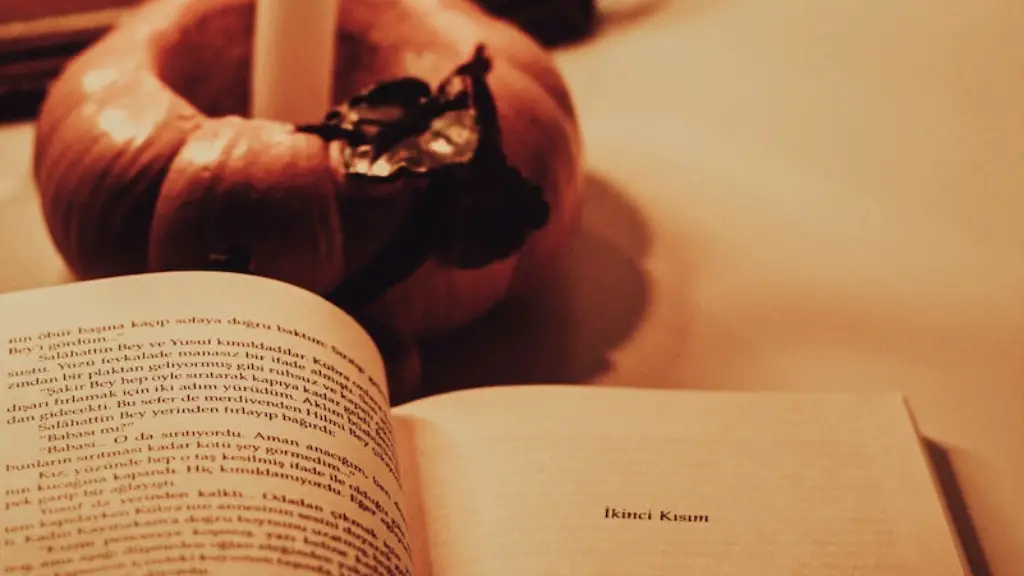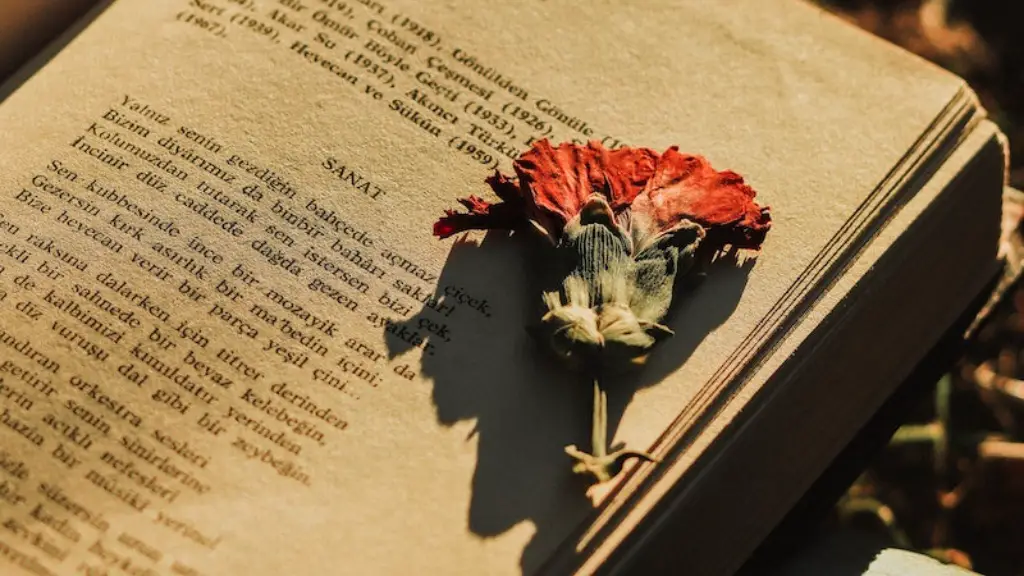Definition
A line of poetry is traditionally defined as a unit of language in verse composed of one or more metrical feet. A metrical foot is made up of a pattern of two or more syllables that are also known as a “foot” of rhythm in classical poetry. It usually consists of an unstressed syllable followed by a stressed syllable. A line of poetry is sometimes referred to as a “unit of rhythm”, meaning a particular combination of stressed and unstressed syllables. In addition, a line of poetry is often referred to as a “verse”, which is defined as a group of related lines that form a structural unit in a piece of poetry.
Forms
The most common forms of poetry are free verse, lyric, epic, dramatic, and narrative. Free verse, sometimes referred to as “open form” poetry, is a poetic form that does not rely on regular patterns of rhyme or meter. Lyric poetry is typically written in a single verse, with each line composed of two or more metrical feet. Epic poetry, another common form, is often composed of many lines that are divided into sections or books. Comedic, serious, or romantic plays often include dramatic poetry, which can be composed in form of a monologue, soliloquy, or dialogue. Narrative poetry, typically divided into books or stanzas, tells a story that often follows a particular plot.
Styles and Features
Poetry can take on many forms, from traditional rhyming couplets, to more modern and experimental styles such as concrete poetry which can feature non-linear, non-syllabic units of language. Additionally, some poems contain certain features that are more commonly associated with certain forms of poetry. Poetic devices, such as alliteration, assonance, and rhyme, are often employed in lyric poetry, while satire and allusion are common literary devices often used in narrative poems. Furthermore, the use of metaphors, imagery, and symbolism are features often used across all poetic forms, to add layers of meaning or to create an emotional impact in the reader.
Purpose
Poetry has been utilized for centuries as a method of expression and communication. Even in ancient cultures, poetry was often used to communicate stories, thoughts, and emotions to one another. In contemporary times, poetry is still utilized for its various unique properties, including its ability to evoke emotion and to provide insights on complex topics such as love, death, or politics. Additionally, poetry can often be used to communicate profound ideas in a concise, impactful, and often beautiful manner.
Significance
The significance of poetry extends beyond its variety of forms, styles, and features. Many believe that poetry is a powerful art form that can help to move, inspire, and educate its readers. For example, poetry such as William Butler Yeats’s “The Second Coming,” serves as a powerful commentary on the world and its current state. Additionally, the works of British Romantic poets, such as William Wordsworth and John Keats, offer readers insights on life, love, and nature.
Interpretation
The interpretation of a line of poetry can be extremely subjective. Different readers can have various interpretations of the same poem based on their own experiences, beliefs, and understanding. Additionally, different readers may understand different aspects or messages from a single line of poetry. Furthermore, the context and form in which a line of poetry is presented can affect its meaning and interpretation.
Impact
The impact of a single line of poetry can be immense, as it speaks its own language without necessarily following traditional literary conventions. This unique quality can be extremely powerful, as it allows for more creative expression, as well as for more space for the beauty and power of language to be expressed. Furthermore, the ability to convey a range of emotions in a single line of poetry can help to make a strong impact on its readers.
Expression
Expressing oneself through poetry can be immensely powerful. For many, writing and interpreting poetry can be an incredibly cathartic experience, as it can allow one to release emotions and explore their thoughts. Additionally, writing and interpreting poetry can be an enjoyable pastime, as it allows for creative writing and artistic expression. Moreover, reading, studying, and discussing the works of poets can be a highly rewarding experience that can allow for insight into a range of topics and a deeper appreciation for poetry as an art form.
Analysis
Analyzing a line of poetry requires a certain level of critical thinking and awareness of the elements of poetry. It can involve a range of activities, such as looking at the structure, rhyme, and meter of the line, along with analyzing the literal and metaphoric meaning of the words used and the potential implications of the line. Furthermore, analyzing a line of poetry can involve looking at the context in which the poem was written, as well as looking at the various interpretations of the line.
Appreciation
Appreciating a line of poetry can often involve examining the context and meaning of the line and reflecting on its implications. Additionally, appreciation of a line of poetry can be enhanced by studying the accompanying works of a poet and interpreting their various works as a collective whole. Furthermore, appreciating poetry can involve attending live poetry readings, as well as discussing and debating the various elements and interpretations of the poetry with others.


